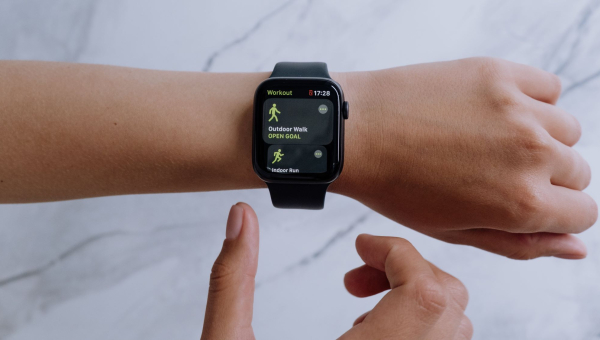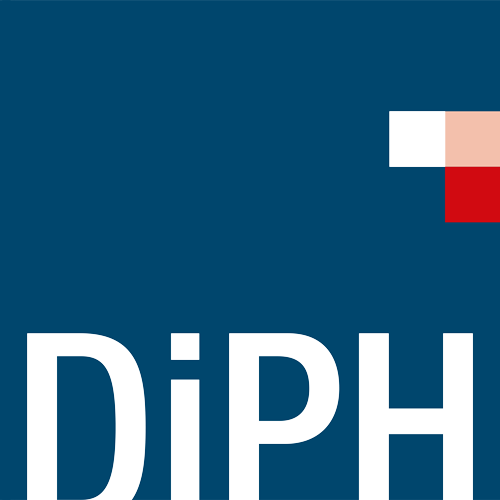Exciting news! The latest episode of our Digital Public Health Podcast is now live, and this time it's in English! Perfect for anyone interested in Digital Public Health but speaks little or no German.
In this episode, we welcome Dr. Elida Sina, who shares insights from her research on the impact of social media on children's health. Elida has discovered that excessive smartphone and social media use negatively affects children's eating habits, cognitive performance, and metabolism.
Join us as we discuss the link between long-term media consumption and health issues, the role of food advertising, and the importance of regulating digital content to protect young users. Elida also highlights how digital public health interventions can mitigate negative effects and promote healthy behaviors.
This conversation is particularly valuable for parents, educators, and health professionals looking to address the challenges of digital media. Join us in exploring practical solutions for creating a healthier digital environment for our children.
It is probably one of the biggest names in the international scientific community: Nature. The journal stands for cutting-edge research like few others. A young scientist from Bremen has now managed to publish her research there. Her paper is about the future of our healthcare.
"I knew that we had written a very good paper, but when I received the acceptance letter from the editor of the nature journal 'npj Digital Medicine', I danced around the room at two in the morning with joy. It's a really nice reward for all the work I've done over the last few years. The role of a junior researcher can be very strenuous at times, so it's great when your efforts pay off like this," explains first author Laura Maaß, research associate at SOCIUM in Bremen and member of the Leibniz ScienceCampus Digital Public Health Bremen.
Consensus among experts
Laura Maaß and her team have achieved a significant breakthrough in the evaluation of digital healthcare systems with their work. In a comprehensive Delphi study in which experts from all over the world took part, they defined clear criteria for assessing the development status of the digitization of healthcare systems for the first time. A Delphi study is a methodological approach that aims to reach a consensus among experts on a specific topic through several rounds of questioning. The participants give their opinions anonymously and receive a summary of the group responses between the rounds. This allows them to reconsider and adjust their opinions. The process is repeated until a clear consensus is reached or opinions remain stable. Delphi studies are particularly useful for assessing future trends, developing standards or clarifying complex issues where direct evidence is lacking.
Comprehensive assessment of the digital maturity level
Until now, despite a toolkit published by the World Health Organization (WHO) and the International Telecommunication Union (ITU) in 2012, there has been no holistic method to measure the maturity of digital health systems. At least not one that meets the high standards of the WHO and ITU. The Global Digital Health Monitor, for example, is frequently used and includes numerous countries. The difference to the WHO and ITU requirement is that it is not as comprehensive as would be necessary for government approaches, and this is precisely where the new Delphi study comes in. Maaß and her colleagues fill this gap with 95 precisely defined indicators on which the experts were able to agree.
"It is interesting that almost half of these indicators already correspond to established assessment methods, which underlines their validity," explains Prof. Dr Hajo Zeeb, co-author of the study and spokesperson for the Leibniz ScienceCampus Digital Public Health Bremen. He adds: "Although further studies are needed to verify the practical applicability of all proposed criteria, this work marks a decisive step towards a standardized assessment tool for digital health systems. Such a tool will enable decision-makers to act on the basis of sound data, allocate resources more efficiently and drive innovation in healthcare in a targeted manner."
The Leibniz ScienceCampus Digital Public Health Bremen
The Leibniz Institute for Prevention Research and Epidemiology - BIPS, the Fraunhofer Institute for Digital Medicine MEVIS and the University of Bremen have been cooperating in the research network since the start of the funding program. The University of Oldenburg and the OFFIS - Institute for Information Technology have been won as new partners for the second funding phase.
The Bremen Leibniz ScienceCampus Digital Public Health is one of a total of 21 ScienceCampi with a thematic focus, which serve to strategically network Leibniz institutes with universities and other regional partners. The aim is to create networks in order to further develop the respective research area and strengthen the scientific environment. Leibniz ScienceCampi conduct strategic research, promote interdisciplinarity in topics, projects and methods, make the respective location visible and strengthen its research profile.
If you understand German, you can also listen to Laura talk about her research in our podcast.
Original publication
Maaß, L., Zeeb, H. & Rothgang, H. International perspectives on measuring national digital public health system maturity through a multidisciplinary Delphi study. npj Digit. Med. 7, 92 (2024). https://doi.org/10.1038/s41746-024-01078-9
In the premiere of our Digital Public Health podcast, we delve into the depths of digital innovations in healthcare with Prof Dr Hajo Zeeb. From the origins of the term digital public health to current challenges and future prospects. Find out how technology and ethics define the field, where they rub up against each other and whether they can ultimately harmonize. Unfortunately, only in German.
Wherever there are podcasts
The latest issue of the Bundesgesundheitsblatt focuses on the digital transformation in the healthcare sector. Under the title "Digital population-based health in Germany - examples from research at the Leibniz Science Campus Digital Public Health", groundbreaking articles are presented that shed light on the potential of digital technologies for public health.
Innovative research for a healthier future
The COVID-19 pandemic has given a major boost to digitalization in the healthcare sector, but has also revealed problems. The current issue of the Bundesgesundheitsblatt collects important findings from research on how digital technologies influence public health. From overcoming digital divides and strengthening digital health literacy to legal and ethical considerations on digital health technologies, the issue offers a comprehensive insight into current debates and progress.
"The booklet is a major step forward in the discussion on digital health in Germany. It shows how important it is for experts from different fields to work together to harness the benefits of digitalization in healthcare for everyone," says a delighted Prof. Dr Hajo Zeeb, spokesperson for the Leibniz ScienceCampus Digital Public Health Bremen and Head of the Department of Prevention and Evaluation at the Leibniz Institute for Prevention Research and Epidemiology - BIPS. Zeeb continues: "Digitalisation can help us to make health offers and services better and more accessible to everyone. However, we must also ensure that digital technologies are developed and used fairly and ethically so that no one is disadvantaged."
The contributions, largely influenced by the work at the Leibniz ScienceCampus Digital Public Health Bremen, cover a wide range of topics. They range from the need to make digital technologies fair and inclusive to the presentation of new approaches for integrating digital solutions into healthcare and education.
Invitation to dialogue and further development
With this publication, the Leibniz ScienceCampus Digital Public Health Bremen invites experts and the public to participate in the ongoing debate on the role of digitalization in healthcare. It underlines the importance of research and innovation to fully exploit the opportunities of digitalization while minimizing its risks.
For more information and access to the articles, please visit the Bundesgesundheitsblatt website.
The Leibniz ScienceCampus Digital Public Health Bremen is one of a total of 24 ScienceCampi with a thematic focus, which serve the strategic networking of Leibniz institutes with universities and other regional partners. The aim is to create networks in order to further develop the respective research area and strengthen the scientific environment. Leibniz ScienceCampi conduct strategic research, promote interdisciplinarity in topics, projects and methods, make the respective location visible and strengthen its research profile.
The BIPS - health research in the service of people
The population is at the center of our research. As an epidemiological research institute, we see it as our task to identify the causes of health disorders and to develop new concepts for the prevention of diseases. Our research provides the basis for social decisions. It informs the population about health risks and contributes to a healthy living environment.
BIPS is a member of the Leibniz Association, which comprises 96 independent research institutes. The focus of the Leibniz Institutes ranges from the natural, engineering and environmental sciences to economics, spatial and social sciences and the humanities. Leibniz Institutes are dedicated to socially, economically and ecologically relevant issues. Due to their national importance, the federal and state governments jointly fund the institutes of the Leibniz Association. The Leibniz Institutes employ around 21,000 people. The total budget of the institutes is more than two billion euros.

Bremen, Germany – The Leibniz ScienceCampus Digital Public Health (LSC DiPH) has released its second comprehensive study on digital health technology use in Germany. The research, led by Dr. Karina Karolina De Santis, which surveyed 1,020 individuals, focuses on the adoption rates of health-related apps and digital tools, emphasizing the importance of digital literacy in the effective use of these technologies.
The findings indicate a notable increase in the utilization of digital platforms for health management, with a particular emphasis on apps related to fitness, wellness, and disease prevention. Additionally, the study highlights the vital role of digital literacy in enabling individuals to access, understand, and apply health information effectively.
The LSC DiPH points out that while the adoption of digital health technologies presents new opportunities for health promotion, there remains a need for educational programs to improve digital health literacy across the population. This approach aims to ensure equitable access to digital health resources, thereby enhancing the potential for improved health outcomes.
The full report offers detailed insights into the study’s methodology, findings, and the implications for health policy and practice in the context of digital health.







